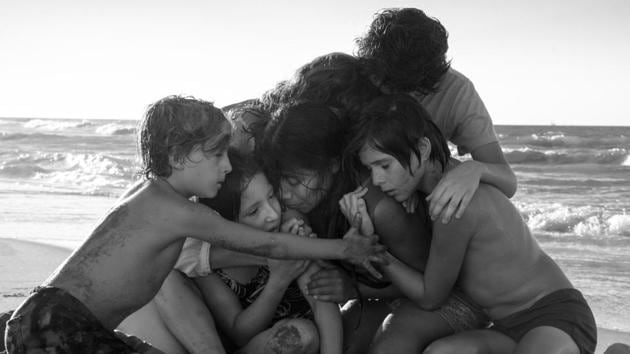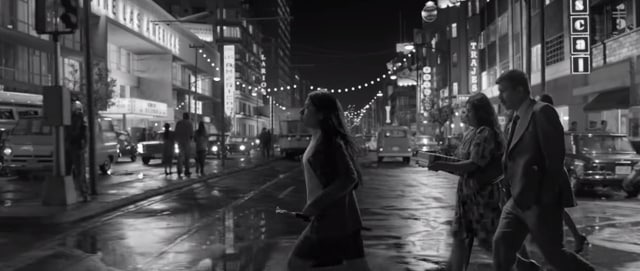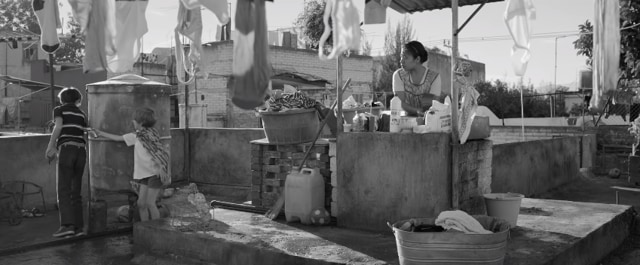Roma movie review: Alfonso Cuaron has made one of the best films of the decade; a cinematic game-changer. 5 stars
Roma movie review: Director Alfonso Cuaron and Netflix have made one of the best films of the decade, a cinematic game-changer that will never be forgotten. Rating: 5/5.
Roma
Director - Alfonso Cuaron
Cast - Yalitza Aparicio, Marina de Tavira, Nancy Garcia Garcia, Fernando Grediaga
Rating - 5/5

Daisy Buchanan wept when the nurse told her she’d given birth to a girl. “I’m glad it’s a girl,” she said, flashes of her unfaithful husband and an empty life erupting in her mind. “And I hope she’ll be a fool,” she whispered. “That’s the best thing a girl can be in this world, a beautiful little fool.”
In Baz Luhrmann’s 2013 film adaptation of The Great Gatsby, Carey Mulligan coated these words with another layer of melancholy, staring wistfully into the distance, as Gotye wailed in the background.
A similar scene plays out in Alfonso Cuaron’s Roma, which after winning several accolades on the international festival circuit - most notably the prestigious Golden Lion at Venice - was released on Netflix recently. A woman arrives home drunk, late at night. Her children are asleep. She is greeted by her maid, whom she grasps fiercely and staring right into her eyes, says, “We’re alone.”
“No matter what they tell us, we women are alone.”
Watch the Roma trailer here
Roma is Cuaron’s tribute to the women in his life; a semi-autobiographical story about the sort of characters that are usually ignored by cinema and society. Shot in glorious black and white by Cuaron himself - at the encouragement of his regular cinematographer, Emmanuel Lubezki - it is easily the most beautiful film of the year, both visually and in its grand, humanistic themes.
The film is set during a torrid time in Mexico’s history - shortly after the 1970 football World Cup - and takes us through a year in the lives of a middle-class family, living in the Colonia Roma district of Mexico City.

Cuaron employs an uncharacteristically restrained style - he observes his characters from a distance, gradually moving closer as the film goes on - and a languid pace, because he wants you to reflect on what you’re seeing. His subject is a housemaid named Cleo. In any other film, she would have been reduced to a background character, scrubbing floors and preparing meals - all of which she does here, too.
But in Roma, Cleo is eased out of the shadows in which she lives, and presented proudly in the warm Mexican sunlight. Plots that would have been considered primary in another film - the dissolution of a marriage and political upheaval - play out on the fringes of the story.

In one particularly telling early scene - a terrific example of just how much Cuaron is able to convey without the help of traditional filmmaking tools, such as a background score or dialogue - we see the entire family sitting around the television one evening. The father, Antonio - a doctor who will soon abandon his wife and four children - seems happy. Like most of the film - hazy, dreamlike - it feels like this scene is drawn completely from memory. It is perhaps Cuaron’s last happy memory of his childhood, which is why he films it with such warmth. Silently, Cleo enters the room, stealing curious (and self-conscious) glances at the television, and sits down on the floor next to the couch, transfixed. Not a word has been said but Cuaron has communicated what he wanted to, with grace and empathy.

There isn’t much talking in Roma, nor are there many close-ups of the characters - faces and words are forgotten as time passes; and Cuaron wants his film to feel like a half-remembered dream, washed away by the tide of time. He relies more on sounds - of dogs barking in the driveway, of a distant parade, of a fondly remembered song from his childhood - and on moments - the first slap, the anger and disbelief at seeing the father with a younger woman in public, and the fond memories of going to the movies.
The story, however, is told from Cleo’s perspective - despite the personal trauma that Cuaron addresses in each frame. While the children’s mother disintegrates along with her marriage, Cleo raises them selflessly and lovingly. But she had a life of her own, Cuaron realises, perhaps too late. It was a complicated life, filled with love and betrayal, with unfulfilled dreams and dormant ambitions - just like her employers’. Cleo wasn’t an equal, but she was certainly a part of the family.

One scene in particular is excruciating to watch. Cuaron shoots it in his trademark uncompromising style -- transfixed, unmoving - that I begged him to stop, to show some mercy. But sitting through this scene - you owe it to Cleo to never leave her side - is nothing compared to the emotional pain that she must have gone through. It is Cuaron’s attempt to honour the sacrifices Cleo made - all of them that went unnoticed and unacknowledged.
Roma is his crowning achievement - more dazzling than Gravity, more emotionally charged than Y Tu Mama Tambien and more magical than Harry Potter and the Prisoner of Azkaban. It is the film of the year - a feminist fable that will do more for the movement than the movies and shows that identify as such. It will also change everything that we know and understand about how the movie business works -- a game changing masterpiece that needs to be seen again, and again, and again. You no longer have an excuse not to.
Follow @htshowbiz for more
The author tweets @RohanNaahar






